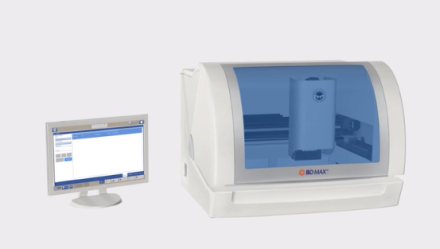MHM acquires PCR analyzer
Published 2:00 pm Saturday, February 19, 2022

- Memorial Hospital will be acquiring a BD Max PCR system, pictured above.
|
Getting your Trinity Audio player ready...
|
The Memorial Hospital Authority met for their monthly meeting Tuesday afternoon. Aside from the routine approval of minutes and discussion of financials, one of the items on the meeting’s agenda was the approval for acquiring a new PCR analyzer, specifically a BD Max system.
Laboratory manager Ashley Bearden spoke with the Post-Searchlight about the new system and what differentiates it from the hospital’s current system.
“It’s a fully-integrated automated platform, and it performs nucleic acid extraction,” she explained. “So basically it’s real-time PCR, and it really helps with work flow efficiency. It also helps treat the patients in a more timely manner.”
The hospital has been performing PCR tests constantly, having performed almost 19,000 tests since March of 2020. While searching for a back-up machine, Bearden wanted one that could be used for other purposes, not just COVID testing.
“We expect COVID to stay, but we don’t expect the spike to continue,” she said. Among the other options for testing the BD Max offers are panels for respiratory health, gastrointestinal health, female health, STDs and healthcare-associated infections.
“What it helps us improve on, on our side… is quicker turn-around times,” Bearden said. “It also allows us to, the way the platform is set up, BD is continually broadening and expanding the test menu… so if it’s something that would benefit our hospital, it’s something that we can add to our future test menu.”
The new BD Max machine is expected to cost $79,500, while the current PCR system cost roughly $45,000. There is currently no set date for its arrival.
“This will help the physicians and providers address today’s challenges, while preparing the lab for tomorrow’s possibilities,” Bearden said in conclusion. “It’s important to offer COVID tests, but it’s also important to think future, and when I think future, it’s ‘What can our hospital offer the community, that can actually help, not just the patients, but the providers?’”





